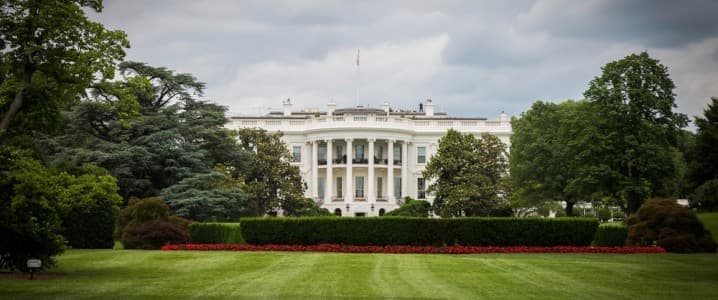Business
NATO Members Hesitant to Implement Trump’s Russian Oil Ban

Some members of NATO are showing reluctance to follow former President Donald Trump’s recent call for a comprehensive ban on Russian oil imports. This action is proposed as a strategy to facilitate a peace agreement regarding the ongoing conflict in Ukraine. The statement was made by Trump in a post on his platform, TruthSocial, over the weekend.
In his post, Trump emphasized the importance of unity among NATO nations, declaring, “I am ready to do major sanctions on Russia when all NATO nations have agreed, and started, to do the same thing.” He criticized the ongoing purchases of Russian oil by some member states, stating, “It greatly weakens your negotiating position, and bargaining power, over Russia.” Trump also suggested imposing tariffs on Chinese imports, proposing a rate between 50% and 100% to deter purchases of Russian crude oil.
Despite Trump’s strong stance, certain NATO members depend heavily on Russian energy. Notably, Turkey has imported an estimated $80 billion worth of Russian crude since February 2022, according to the Centre for Research on Energy and Clean Air, a climate change think tank based in Finland. This reliance on Russian oil has led to significant hesitations within NATO.
Among the most outspoken opponents of further restrictions on Russian oil imports are Hungary and Slovakia. Both Central European NATO members have raised concerns that any such measures would jeopardize their energy security. Peter Szijjarto, Hungary’s Foreign Minister, expressed his discontent on social media, stating, “They are pushing decisions that put Slovaks and Hungarians in a difficult position. Without Russian oil and gas, a secure supply is impossible.”
Trump has also urged the European Union to suspend all imports of Russian energy to increase pressure on Moscow. He argues that such actions could incentivize the Russian government to reach a resolution with Ukraine. The diverging perspectives within NATO highlight the complexities of addressing energy security while navigating geopolitical tensions.
As the situation continues to evolve, the responses from NATO members will play a crucial role in shaping international energy policies and diplomatic efforts in the region.
-

 Education3 months ago
Education3 months agoBrandon University’s Failed $5 Million Project Sparks Oversight Review
-

 Science4 months ago
Science4 months agoMicrosoft Confirms U.S. Law Overrules Canadian Data Sovereignty
-

 Lifestyle3 months ago
Lifestyle3 months agoWinnipeg Celebrates Culinary Creativity During Le Burger Week 2025
-

 Health4 months ago
Health4 months agoMontreal’s Groupe Marcelle Leads Canadian Cosmetic Industry Growth
-

 Science4 months ago
Science4 months agoTech Innovator Amandipp Singh Transforms Hiring for Disabled
-

 Technology4 months ago
Technology4 months agoDragon Ball: Sparking! Zero Launching on Switch and Switch 2 This November
-

 Education4 months ago
Education4 months agoRed River College Launches New Programs to Address Industry Needs
-

 Technology4 months ago
Technology4 months agoGoogle Pixel 10 Pro Fold Specs Unveiled Ahead of Launch
-

 Business3 months ago
Business3 months agoRocket Lab Reports Strong Q2 2025 Revenue Growth and Future Plans
-

 Technology2 months ago
Technology2 months agoDiscord Faces Serious Security Breach Affecting Millions
-

 Education4 months ago
Education4 months agoAlberta Teachers’ Strike: Potential Impacts on Students and Families
-

 Education3 months ago
Education3 months agoNew SĆIȺNEW̱ SṮEȽIṮḴEȽ Elementary Opens in Langford for 2025/2026 Year
-

 Science4 months ago
Science4 months agoChina’s Wukong Spacesuit Sets New Standard for AI in Space
-

 Business4 months ago
Business4 months agoBNA Brewing to Open New Bowling Alley in Downtown Penticton
-

 Business4 months ago
Business4 months agoNew Estimates Reveal ChatGPT-5 Energy Use Could Soar
-

 Technology4 months ago
Technology4 months agoWorld of Warcraft Players Buzz Over 19-Quest Bee Challenge
-

 Business4 months ago
Business4 months agoDawson City Residents Rally Around Buy Canadian Movement
-

 Technology4 months ago
Technology4 months agoFuture Entertainment Launches DDoD with Gameplay Trailer Showcase
-

 Technology2 months ago
Technology2 months agoHuawei MatePad 12X Redefines Tablet Experience for Professionals
-

 Top Stories3 months ago
Top Stories3 months agoBlue Jays Shift José Berríos to Bullpen Ahead of Playoffs
-

 Technology4 months ago
Technology4 months agoGlobal Launch of Ragnarok M: Classic Set for September 3, 2025
-

 Technology4 months ago
Technology4 months agoInnovative 140W GaN Travel Adapter Combines Power and Convenience
-

 Science4 months ago
Science4 months agoXi Labs Innovates with New AI Operating System Set for 2025 Launch
-

 Technology4 months ago
Technology4 months agoNew IDR01 Smart Ring Offers Advanced Sports Tracking for $169










